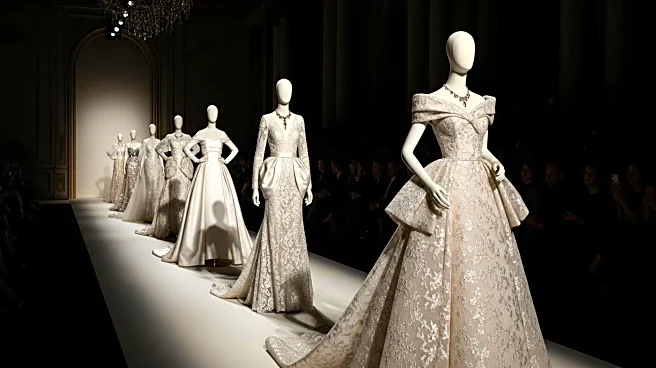What's Happening?
Milan Fashion Week is overshadowed by ongoing supply chain scandals involving major fashion brands such as Armani, Dior, Valentino, and Loro Piana. Prosecutors have uncovered violations including excessively long working hours, low wages, and exploitative conditions. These issues are systemic and reflect a model prioritizing corporate profits over worker welfare. Industry executives are attempting to downplay the scandals, attributing them to a small fraction of subcontractors.
Why It's Important?
The scandals threaten the reputation of Italy's luxury fashion sector, which is a significant contributor to the country's economy and employs over a million people. The exposure of sweatshop conditions could lead to consumer backlash and demand for more ethical sourcing practices. The situation highlights the need for transparency and accountability in supply chains, which could influence global fashion industry standards.
What's Next?
Italian lawmakers and industry leaders are working to address the supply chain issues before they escalate further. The industry ministry is developing a certification scheme to ensure compliance with labor laws. This initiative aims to protect the 'Made in Italy' brand and preserve Italy's pivotal role in the global fashion industry.
Beyond the Headlines
The scandals raise ethical questions about labor practices in the fashion industry and the cultural challenges of integrating migrant workers. The situation could lead to long-term shifts in how fashion brands manage their supply chains and prioritize worker rights.











